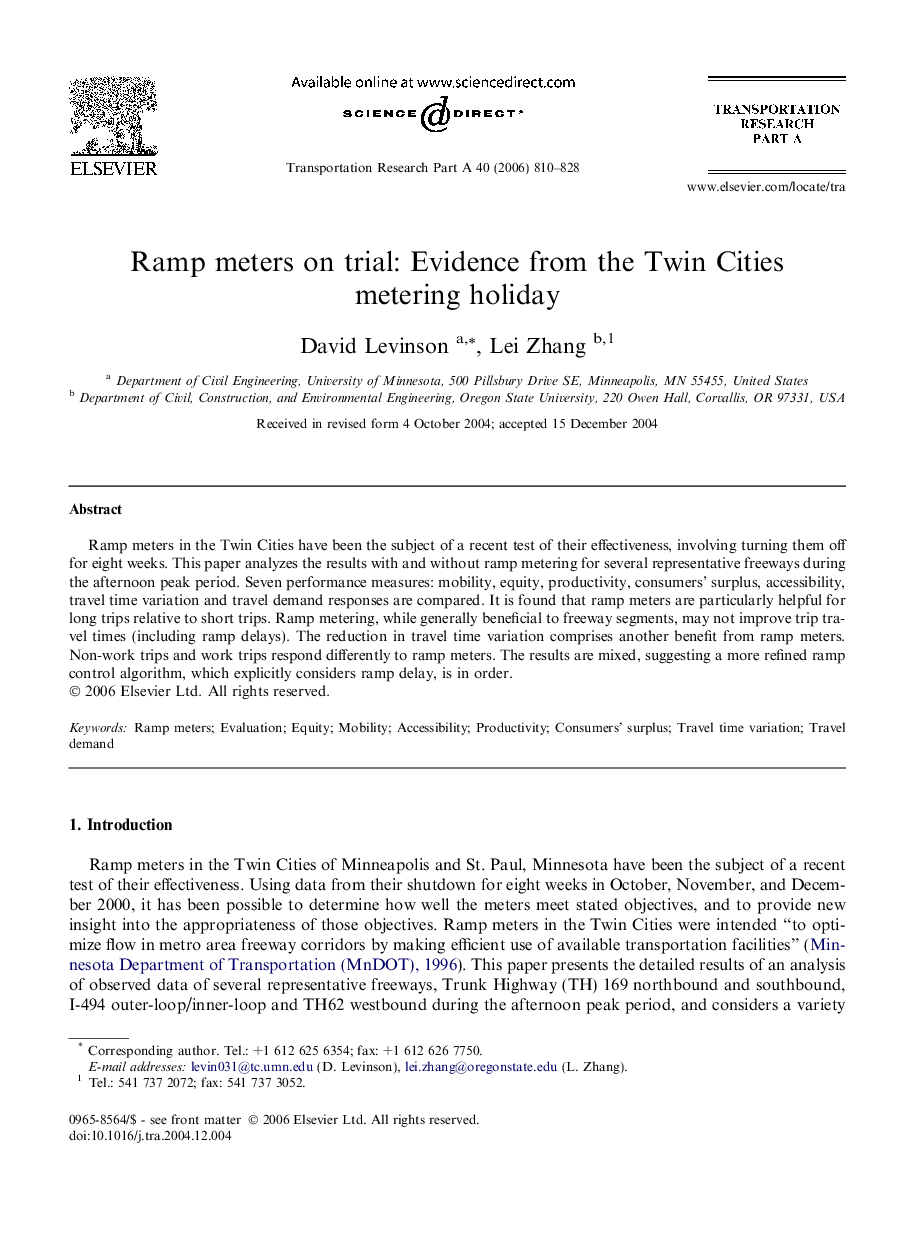| Article ID | Journal | Published Year | Pages | File Type |
|---|---|---|---|---|
| 311200 | Transportation Research Part A: Policy and Practice | 2006 | 19 Pages |
Ramp meters in the Twin Cities have been the subject of a recent test of their effectiveness, involving turning them off for eight weeks. This paper analyzes the results with and without ramp metering for several representative freeways during the afternoon peak period. Seven performance measures: mobility, equity, productivity, consumers’ surplus, accessibility, travel time variation and travel demand responses are compared. It is found that ramp meters are particularly helpful for long trips relative to short trips. Ramp metering, while generally beneficial to freeway segments, may not improve trip travel times (including ramp delays). The reduction in travel time variation comprises another benefit from ramp meters. Non-work trips and work trips respond differently to ramp meters. The results are mixed, suggesting a more refined ramp control algorithm, which explicitly considers ramp delay, is in order.
